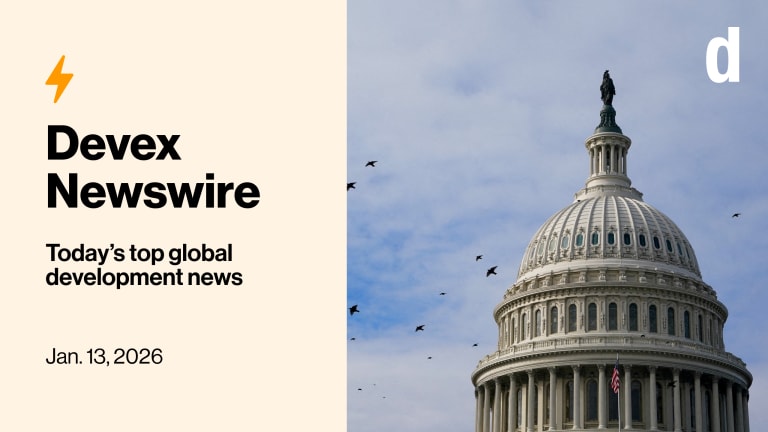
Several U.S. lawmakers — from both the Democratic and Republican parties — argued Wednesday that the government should seize the “opportunity” for diplomacy by more aggressively seeking credit for the COVID-19 vaccine doses it ships overseas.
Their comments reflect a view that, aside from being a public health and moral imperative, the global COVID-19 response is also a competition with China and Russia for influence in lower- and middle-income countries. That sentiment was front and center during a House Foreign Affairs Committee hearing on the state of the pandemic in the Middle East.
“I think we should make vaccines available throughout the Middle East, but I also think we should have the American flag on every vial,” said Rep. Juan Vargas, a Democrat from California.
“An overreliance on multilateral instruments such as COVAX will ... mute the public diplomacy effect of this lifesaving aid.”
— Hallam Ferguson, public policy fellow, Wilson CenterSome lawmakers noted that the two most effective COVID-19 vaccines — those from Pfizer and Moderna — are both produced in the United States, with many who receive them in other countries already aware of this. But others echoed the call for giving greater prominence to American donors, even as the U.S. and other wealthy nations are widely criticized for hoarding vaccines at the expense of a global effort to stamp out the coronavirus.
U.S. President Joe Biden’s administration outlined a plan to share at least 80 million vaccine doses with other countries by the end of June, though officials say they are likely to fall short of that goal due to logistical challenges. At a summit of the G-7 group of nations earlier this month, Biden announced a much larger pledge of 500 million Pfizer vaccine doses that the U.S. government will buy and then donate through the COVAX distribution platform by June 2022.
The desire to see the United States’ COVID-19 efforts overseas generate a greater return has led some to question the use of COVAX, as opposed to shipping doses to countries directly.
“Global coordination of vaccine distribution is essential, but an overreliance on multilateral instruments such as COVAX will reduce our ability to strategically focus our efforts and mute the public diplomacy effect of this lifesaving aid,” said Hallam Ferguson, a fellow at the Wilson Center who also served as deputy assistant administrator in the U.S. Agency for International Development’s Middle East bureau during former President Donald Trump’s administration.
Vaccine access remains highly unequal around the world — and almost nonexistent for some countries experiencing conflict. While the U.S. has administered 96 vaccine doses per 100 people, Syria and Yemen have each administered less than 1 per 100.
Asked what the U.S. government should be doing to better compete with its adversaries’ “vaccine diplomacy,” Carla Humud, an analyst in Middle Eastern affairs with the Congressional Research Service, said the approaches of China and Russia are “broader than just vaccine distribution.”
“They’re also looking to set up production facilities in some of these countries, such as Egypt, such as Morocco. Russia and China really are looking to set up long-term economic partnership, and that’s something that potentially should inform the U.S. response,” Humud said.
Search for articles
Most Read
- 1
- 2
- 3
- 4
- 5




